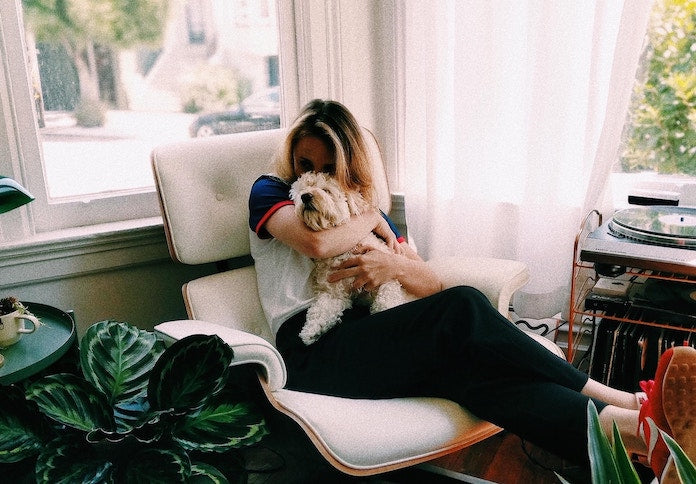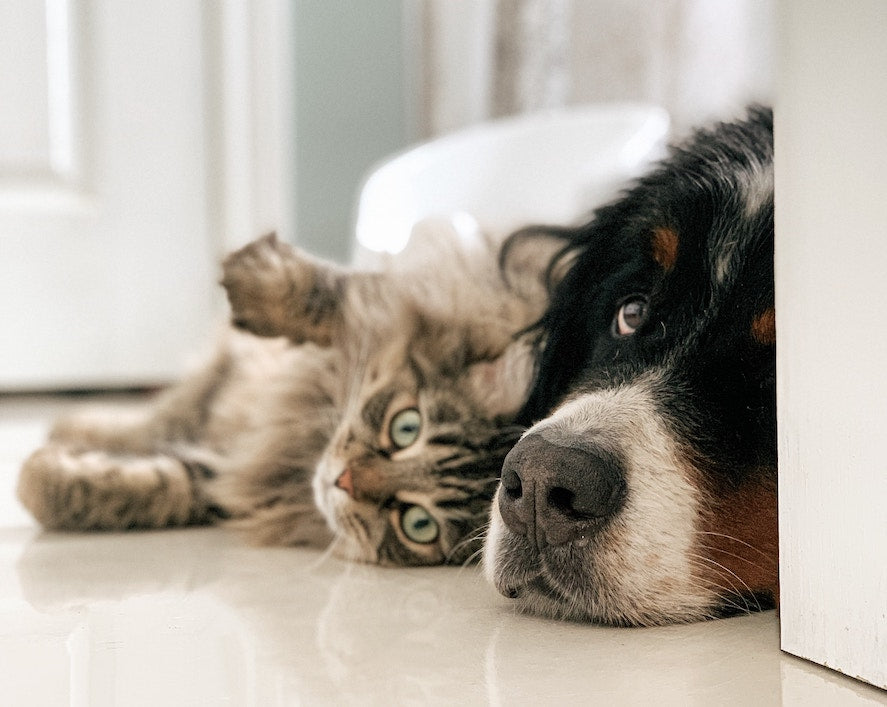Cats love to watch us eat, and we all know their irresistibly wide eyes that stare at us, hoping for a bite (or two) of our food too. But not all food that tastes good is also intended for our four-legged friends. In this article we will introduce you to eight foods that can harm your cat.
1. Milk
Contrary to comics and cartoons, cats are not supposed to drink any milk other than that of their mother. Kittens drink their mother's milk for the first few months of their lives for essential nutrients. But when they no longer depend on breast milk, they actually develop lactose intolerance. This is different from cat to cat, but the general rule is: thanks to the lactose it contains, milk could trigger symptoms such as diarrhea and vomiting.
2. Tomatoes
Tomatoes are a popular vegetable, especially in summer - whether as a salad garnish or a snack for in between - they have certainly found their way into your kitchen. Cats, however, should stay away from the red vegetables. Tomatoes can be harmful to cats because they contain a toxin called solanine. Solanine is primarily found in the stem and leaves of the tomato, and while the red, fleshy part is not toxic, you should be careful not to allow your cat to chew on the green parts of the tomato. This also applies if you grow your tomatoes yourself in the garden. Symptoms of solanine poisoning include: indigestion, slow heart rate and fatigue.
3. Canned tuna
If you're going to feed your cat some canned tuna, there are a few things to be aware of: A can of tuna doesn't contain all the nutrients your cat should be getting during their meal and isn't a substitute for regular cat food. Additionally, you should not feed your cat canned tuna for long periods of time. Canned tuna contains high levels of mercury which, if consumed in excess, can cause mercury poisoning. Symptoms of mercury poisoning include lack of coordination, trouble walking and dizziness.
4. Grapes and Raisins
Grapes and their less lively cousins, the raisins, are the perfect snack-size and have aroused the curiosity of a few pets. But did you know that cats (and dogs) are absolutely not allowed to eat grapes or raisins? Eating grapes and raisins can cause severe symptoms of poisoning in your cat, and in some cases even lead to kidney failure.
5. Garlic
Garlic is a popular all-rounder in our kitchen! Whether as a sauce, dip or spice for everything - there is probably always a pinch of garlic in your food. That's why you should also be careful if you want to give your cat some of your leftover food. Garlic and onions contain substances that, even in small amounts, can cause nausea and indigestion in your pet, and even lead to hemolytic anemia over a long period of time.
6. Yeast dough
Yeast dough seems far-fetched at first, but can still harm your cat if it finds the dough while it's resting or explores the half-empty dough bowl. Yeast dough rises not only in your baking bowl, but in any dark, warm place, including your cat's stomach. As yeast dough ferments, it can cause bloating and even intoxication in your cat.
7. Raw meat
Cats are natural carnivores, which is why raw meat sounds rather unproblematic at first. However, raw meat can contain bacteria such as e.coli, which can lead to more serious health problems not only for us humans but also for our pets. Therefore, you should always work with clean hands when preparing raw meat and be careful that neither your unwashed hands nor the raw meat come into contact with your cat.
8. Chocolate
You've probably heard that dogs should never eat chocolate, but did you know that the same is true for cats? Chocolate is made from cocoa, which naturally contains the toxin theobromine. Theobromine triggers strong poisoning symptoms in cats, the symptoms of which can lead from digestive problems to muscle spasms and even death. Different types of chocolate also contain different amounts of theobromine. The rule of thumb: the darker the chocolate, the more theobromine it contains.
Attention: White chocolate also contains theobromine!
We've come to the end of our list and hopefully we haven't put you off too much. But fear not, while the above foods can be harmful to your pet, there are foods that your cat can safely try. To learn more, read our article on 8 Foods Your Cat Might Love Too.



